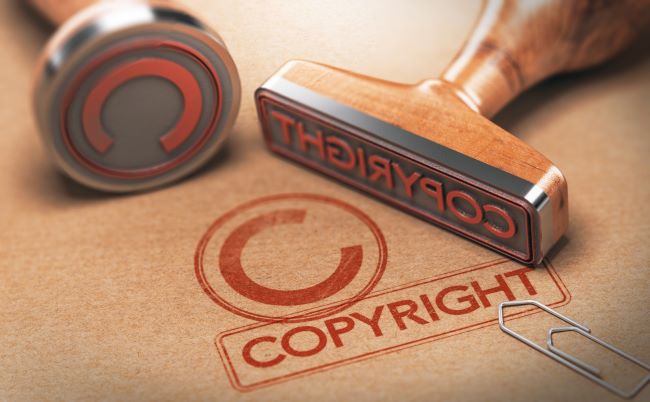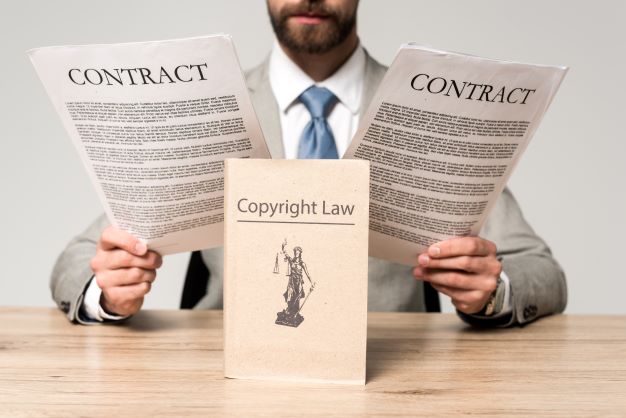Protecting Your E-commerce Business With Intellectual Property Rights (IPR)
Intellectual property in e-commerce may be the most valuable asset that an online retailer owns. It's time to know your rights.

Protecting Your E-commerce Business With Intellectual Property Rights
Are you having thoughts of starting an e-commerce business?
That's a great idea! E-commerce is a booming industry and there's never been a better time to start your own online store than now!
But as you dive, head first into the world of e-commerce, it's very critical to keep in mind the importance of protecting your intellectual property rights.
Yes! You have those rights already once you develop your own goods or products!
Basically, intellectual property rights (IPR) refer to the legal rights you have over your original creations, such as your brand name, logo, and product designs, preventing others from copying or stealing your unique ideas.
This article is about how intellectual property rights can protect your e-commerce business and how seriously you should consider implementing them before venturing!
The Definition of Intellectual Property
.jpeg)
Let’s s start with some basic yet quite heavy concepts.
Intellectual property (IP) is an umbrella term for a wide range of legal rights that protect the creations and inventions of individuals and organizations. These rights are governed by both domestic and international laws. The most common forms of IP include copyright, trademarks, patents, and trade secrets.
Copyright protects the authorship of works such as books, music, poetry, and artwork while trademarks protect brand names, logos, and slogans. Patent law protects inventions such as machines or processes while trade secrets protect confidential information.
All types of IP are designed to encourage creativity and innovation by rewarding those who create something new with exclusive economic rights over their invention.
In this digital age, IP is more important than ever before as it helps to ensure that creators get the credit they deserve for their work.
What intellectual property means in the context of e-commerce?
Intellectual property in the context of e-commerce is perhaps the most neglected, yet the highest value-bearing component. This could be either because it is less tangible than physical goods, or because it often lacks a way to be tracked and monitored.
Intellectual property includes any intangible asset created by an individual or organization, such as logos, designs, trademarks, inventions, unique content, software code, and other original works that can be copyrighted. In e-commerce, this type of asset can have immense potential for growth and success when properly managed and protected.
It is important to understand how to protect intellectual property rights in order to ensure success in the e-commerce world and remain competitive with others who may have similar ideas.
Taking steps to secure patents, copyrights, and trademarks (we’ll get to that later) offer a degree of protection from competitors who may try to use or copy your ideas without permission. Consider when it comes to online stores, intellectual property must be taken into account in order to create a successful business model.
Remember Intellectual Property Rights play a crucial role in the field of e-commerce...
Because of the prevalent usage of the internet and other forms of technological infrastructure, intellectual property plays a significant role in e-commerce in the forms that are explained below:
The Intellectual Property Law provides protection against unethical business practices for the commercial interests and entities of a firm or an individual. When it comes to the digital economy and e-commerce, the absence of IP laws and practices makes it possible for anything, including music, software, design, and so on, to be stolen, duplicated, or distributed all over the world without the original creators being compensated for their one-of-a-kind creations and labor.
In addition, intellectual property (IP) is essential to the operation of e-commerce because various components, including software, chips, networks, designs, and routers, to name a few, are all types of IP that need to be safeguarded in order to ensure that the Internet can continue to operate properly.
Product or patent licensing forms the foundation of any online and electronic commerce business. Because the production of a product requires a wide range of different technologies, the majority of online businesses either contract out the development of some components or share technologies through the use of license agreements.
Enterprises that are founded on e-commerce typically regard their intellectual property as their most valuable asset and frequently possess patent portfolios and trademarks in order to increase the value of their respective online businesses.
Two Common Pitfalls for IP in e-commerce Businesses You Can Avoid
There are various scenarios where e-commerce enterprises may face intellectual property-related legal challenges. Third-party "work for hire" and creative content given by the business' founders are two common ones that might pose serious problems.
1. Work for Hire

Bloggers, graphic artists, content developers, web designers, and other third parties are frequently used by e-commerce enterprises to produce original material. To the degree that the works they make give rise to copyrights, the creator here is the default owner of the works.
Because these providers are compensated for their creative services, e-commerce enterprises think that the work is owned by the eCommerce business under the legal notion of "work for hire."
Work for Hire rules states that certain artists' and service providers' creations are automatically owned by their employers. It is, however, more limited than most e-commerce enterprises understand. It only applies to content published by employees while carrying out their duties.
The copyrights in and to the works do not automatically belong to the e-commerce business if these content providers are not employees of the e-commerce business (i.e., are independent contractors), or if they are employees but the content was created on their personal time and was not part of their job. Instead, they are kept by the creators, even after the e-commerce company has paid them for their work.
Solution: The e-commerce business just needs to obtain the creator to assign their copyrights and patents to all created works via a signed agreement. When an e-commerce business engages the provider's services, language to that effect can be included in the contract.
2. Founder-Created IP
Much like the misunderstandings outlined above regarding the automatic ownership of creative content contributed by other parties, any content developed by a company founder will automatically be owned by that creator - and not by the e-commerce business, even if they are the sole owner (unless the e-commerce business is legally a sole proprietorship).
When it comes to persons who provide services to the company, e-commerce businesses should be aware that all such individuals are categorized as either employees or contractors for the purposes of copyright and other intellectual property ownership. In many circumstances, the company's founder will not be an employee.
As a result, the e-commerce business and the founders should enter agreements that explicitly indicate that all intellectual property rights developed by the founder are automatically transferred to the e-commerce firm upon its inception.
Failure to do so can lead to serious problems, such as when the company seeks finance, wants to be sold, or the founder has a falling out.
Solution: It is preferable to handle any such potential difficulties early on, while everyone is pleasant. Consult an IP lawyer in documenting the good stuff concerning ownership.
Protection of Intellectual Property Rights (IPRs) for E-commerce
Without Intellectual Property Right Laws, it is impossible to ensure the fair and ethical compliance of digital practices and activities, especially in a field as diverse and dynamic as e-commerce and online retail. There are different IPRs in e-commerce that aids in protecting companies operating on online platforms.
1.Copyrights

Copyrights are especially important in today's digital age when so much of our culture and knowledge is stored on the internet. Copyright owners are increasingly looking for ways to safeguard their online content from being illegally copied and distributed as a direct result of the proliferation of digital media.
Online companies can effectively protect their intellectual property using a variety of technological prevention methods, such as encryption and watermarking.
The exclusive right to reproduce, grant licenses for, and profit from a written, recorded, or visual work of art is known as copyright.
Most countries don't allow copyrights to last as long as 100 years, but the United States does. Once an author creates their work, they automatically acquire these rights. This is the only type of intellectual property for which U.S. owners enjoy automatic protection abroad thanks to the Berne Convention.
Owners of copyrights can assert ownership without registration, but registration grants them additional rights and benefits like statutory damages, attorney fee recovery, and access to federal court. If you register your copyrights, the alleged infringer will be put on "per constructive notice" of your ownership of the work.
2.Trademarks (TMs)
A trademark is any name, symbol, figure, letter, word, or mark adopted and used by a business to designate its goods/services and to distinguish or identify them from others. Trademarks include service marks, certification marks, and also trade dress, which identify the source of goods by packaging, product image, and looks and feel of the business (consider the famous logos like those of M&M chocolates. Apple PCs, or Coke beverage).

Trade dress protection, by the way, is intended to protect consumers from packaging or appearance of products that are designed to imitate other products; to prevent a consumer from buying one product under the belief that it is another.
In the United States, trademark rights are created immediately and automatically once a mark is used by a company to market its goods or services. However, those common law rights are extremely limited.
To grant stronger and nationwide rights in a mark, e-commerce businesses can also register TMs with the United States Patent & Trademark Office (USPTO).
3.Patents

A patent simply is a legal exclusive right to an inventor to manufacture, use, or sell an invention. For e-commerce, this means protection and safeguarding for various business-related inventions like new software apps, innovative product designs, unique manufacturing processes, and business methods.
Patents can only come from the federal government, and in the United States, that means the USPTO. The requirements for it to be patentable are the following: it must be statutory, new, useful, and non-obvious.
Patent rights expire after 20 years from filing, and they cannot be extended or renewed (except for design patents, which last for 14 years from issue and cannot be renewed).
Clearly before handing to anyone your product idea, it is best that you go over the necessary IPRs and take the necessary precautions on protecting your business.
As a product sourcing company, we at Imprint Genius, consider and recognize our client's intellectual property rights as their most valuable corporate asset.
Our team of experts has the knowledge and experience to provide guidance and advice on the best practices for IP protection while we source in different countries. In protecting our client's IP, we conduct our business based on the supplier's reputation, the company's legal standing, and other factors that are critical in avoiding any IP infringements.
To learn more about our company's services, click here.
Related articles

Book a call with Isaac and his team
Let’s connect and collaborate! Schedule a meeting with us to discuss your ideas, explore opportunities, and create impactful solutions together
%202-min.webp)

.jpeg)
